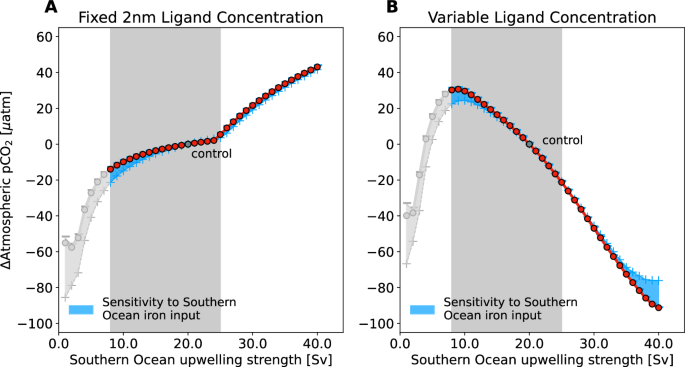2024-07-08 マサチューセッツ工科大学(MIT)
<関連情報>
- https://news.mit.edu/2024/study-weaker-ocean-circulation-could-enhance-co2-buildup-atmosphere-0708
- https://www.nature.com/articles/s41467-024-49274-1
海洋鉄循環のフィードバックが、大気中の二酸化炭素と子午面回転循環の変化を切り離す Ocean iron cycle feedbacks decouple atmospheric CO2 from meridional overturning circulation changes
Jonathan Maitland Lauderdale
Nature Communications Published:08 July 2024
DOI:https://doi.org/10.1038/s41467-024-49274-1

Abstract
The ocean’s Meridional Overturning Circulation (MOC) brings carbon- and nutrient-rich deep waters to the surface around Antarctica. Limited by light and dissolved iron, photosynthetic microbes incompletely consume these nutrients, the extent of which governs the escape of inorganic carbon into the atmosphere. Changes in MOC upwelling may have regulated Southern Ocean outgassing, resulting in glacial-interglacial atmospheric CO2 oscillations. However, numerical models that explore this positive relationship do not typically include a feedback between biological activity and abundance of organic chelating ligands that control dissolved iron availability. Here, I show that incorporating a dynamic ligand parameterization inverts the modelled MOC-atmospheric CO2 relationship: reduced MOC nutrient upwelling decreases biological activity, resulting in scant ligand production, enhanced iron limitation, incomplete nutrient usage, and ocean carbon outgassing, and vice versa. This first-order response suggests iron cycle feedbacks may be a critical driver of the ocean’s response to climate changes, independent of external iron supply.



